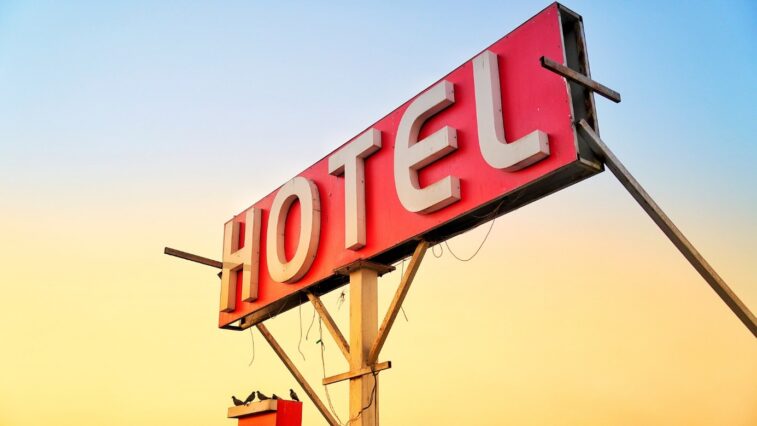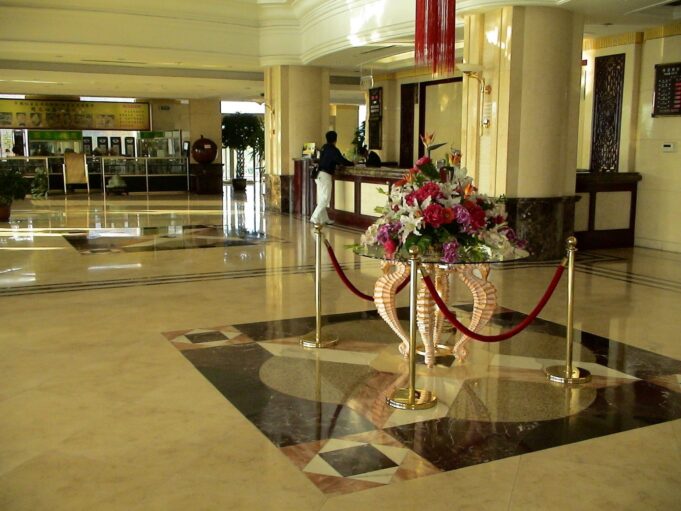03 Nov 2023

The Power of Channel Management for Hotels
In the ever-evolving world of online travel, one factor reigns supreme: the dynamic realm of channel management. This is the linchpin for hotels aiming not only to survive but to flourish in the ever-expanding online marketplace. Picture this: the global online travel market surged to a staggering $433.2 billion in 2021, with projections skyrocketing to $690.71 billion by 2026.
But wait, it gets even more intriguing. A remarkable 83% of U.S. adults are eager to embark on their journeys through digital channels. Amidst the ebb and flow of online travel booking, where every day presents unique opportunities, technology is the cornerstone. For 63% of travelers, it's the key to managing health risks, and it's the elixir that quells travel-induced anxiety in a post-pandemic world.
Here's the twist: with such a colossal market, a whopping 85% of desktop users and an astonishing 91% of mobile shoppers leave their travel plans hanging in digital limbo. The clock is ticking, and 72% of mobile bookings unfold within a mere 48 hours after those pivotal Google searches that include the words 'tonight' and 'today.'
As we gaze into the landscape of 2022, it becomes clear that online bookings are not a one-size-fits-all affair. The balance has shifted, with 64% favoring desktops, while 44% are navigating the online booking realm via their trusty mobile devices.
Now, here's the crescendo: a booming 66% commands the revenue share of online sales in the global travel and tourism market. And, brace yourself, as we hurtle toward 2023, where an estimated 700 million adventurers will seize the digital highway for their bookings.
In this exhilarating voyage, channel management emerges as the guiding star. It's a strategic process that masterfully orchestrates the distribution of room rates and availability across a myriad of online booking channels. Think Online Travel Agencies (OTAs) like Booking.com, Expedia, Agoda, TripAdvisor, travel metasearch engines such as Google, Kayak, and Trivago, and the juggernauts like Global Distribution Systems (GDS) such as Amadeus and Sabre. It's a galaxy that extends to online booking platforms like Airbnb and Vrbo, travel wholesalers, niche listing sites, and beyond.
In this evolving landscape, channel management is your compass, the linchpin that helps hotels stand tall in the ever-expanding world of online bookings.

Deciphering the Core of Channel Management
At its essence, channel management serves as the catalyst for a hotel's ability to efficiently manage its room inventory and pricing across this expansive digital landscape. Its significance cannot be overstated, as it is the driving force behind a hotel's daily operations. It underpins a triumvirate of benefits: automation for time-saving, the prevention of overbooking, and expanded visibility and reach, resulting in augmented occupancy rates and revenue.
The Indispensable Hotel Channel Manager
Central to channel management is the Hotel Channel Manager, a sophisticated software solution that automates and streamlines the complex task of managing a hotel's presence across multiple online booking channels. It acts as a real-time conduit, ensuring consistency in room availability and rates. This invaluable tool connects directly to a hotel's Property Management System (PMS) or reservation system, effectively serving as a bridge between the hotel and the various booking channels it utilizes.
A robust Hotel Channel Manager is designed to provide a unified interface for the management of all reservation sites. It alleviates the arduous process of manual data entry, ensuring that room availability and rates are always accurate, synchronized in real-time, and seamlessly integrated into the hotel's property management system.
Key Features to Seek in a Hotel Channel Manager
When selecting a Hotel Channel Manager, several essential features should be considered:
Connected Channels: Ensure the tool can manage rates and inventory across all essential channels.
Real-Time Availability: Look for systems that provide instantaneous updates to minimize the risk of overbooking.
Multiple Connectivity Partners: The more channels a tool can connect to, the broader your market reach.
Room Pooling: The ability to allow all OTAs and booking agents simultaneous access to room inventory.
System Integration: Seamless integration with existing property management technology.
Multi-Currency Support: The flexibility to control currency policies and distribute them to OTAs in various currencies.
Elevating Hotel Channel Management
The complexity of channel management underscores its pivotal role in the modern hospitality industry. As hotels increasingly recognize the need for best-of-breed tools, the focus shifts towards solutions offering high-quality technology. With the right technology in place, hotels can master the art of channel management and thrive in the competitive world of hospitality.

Moreover, hotels should be aware of the practical considerations when selecting a Hotel Channel Manager:
Number of Connected Channels: A critical metric is the number of channels a tool can manage, reflecting the commitment to develop connections based on hotelier demand. Some channel managers, like Mappingmaster, have connections to more than 40 central reservation systems.
Number of Simultaneously Manageable Channels: The tool's ability to handle multiple channels and room types concurrently, crucial for efficient data transfer.
Easiness to Connect a New Channel: Assess the ease of adding new channels to the management tool, as this process can vary in complexity.
Connection Type: Verify whether the connections are XML-based or rely on spider technology.
Push vs. Pull and Push: Consider if the channel management system can pull data from extranets and the implications of using a push-only system.
General Extranet Functionalities: Check if the tool can manage rates, inventory, Minimum Length of Stay (MLOS), Stop Sell, Closed to Departure/Arrival, and more. It is important that you choose inventive, multitasking, easy-to-use manager, the one that could integrate lot of features, like responsive design, 24/7 booking button, room types and rates selection, occupancy-based princing, and most imprtant, high security standards to make sure sensitive data is protected 100% of the time.
Advanced Extranet Functionalities: Ensure that individual extranet-specific restrictions are seamlessly integrated.
Event Management: The tool should allow for event date marking to notify users about critical dates.
Managing Periods of Time: Evaluate the tool's capacity to manage inventory and rates, considering how far out it can project and the number of days it can manage simultaneously.
Training and Support: Assess the availability of system training and the quality of customer support.
User Levels and Access Rights: Confirm if the tool provides multiple user levels for different departments and the ability to restrict access based on roles.
In the ever-evolving and fiercely competitive world of hospitality, channel management stands as a vital cornerstone for hotel success. The strategic orchestration of room rates and availability across a myriad of online booking channels has become the linchpin of modern hotel operations. With a Hotel Channel Manager, hotels are armed with a powerful tool that automates and simplifies this intricate process, ensuring that rates and room availability remain consistent and up to date across the digital landscape.

As the digital age continues to reshape the hospitality landscape, channel management's importance is undeniable. It streamlines daily operations, minimizes the risk of overbooking, and extends a hotel's reach to a global audience. However, the true power of channel management lies in its ability to maximize revenue through increased visibility, making hotels more competitive in an overcrowded market.
In selecting a Hotel Channel Manager, one must consider various factors, from the number of connected channels to the tool's ease of integration and support. A robust tool not only simplifies the distribution process but also opens doors to an expansive network of online travel agencies and booking platforms. It paves the way for hotels to attract more guests, increase occupancy rates, and maximize revenue.
In essence, channel management is not merely a feature of modern hotel operations; it is a strategic imperative for staying ahead in an increasingly digital and competitive industry. The integration of a Hotel Channel Manager is a transformative step that positions hotels for success, and it is a wise investment for any establishment aiming to thrive in the ever-changing landscape of hospitality. By embracing best-of-breed solutions and understanding the intricacies of channel management, hotels can ensure their relevance, efficiency, and profitability in the modern age of travel.
